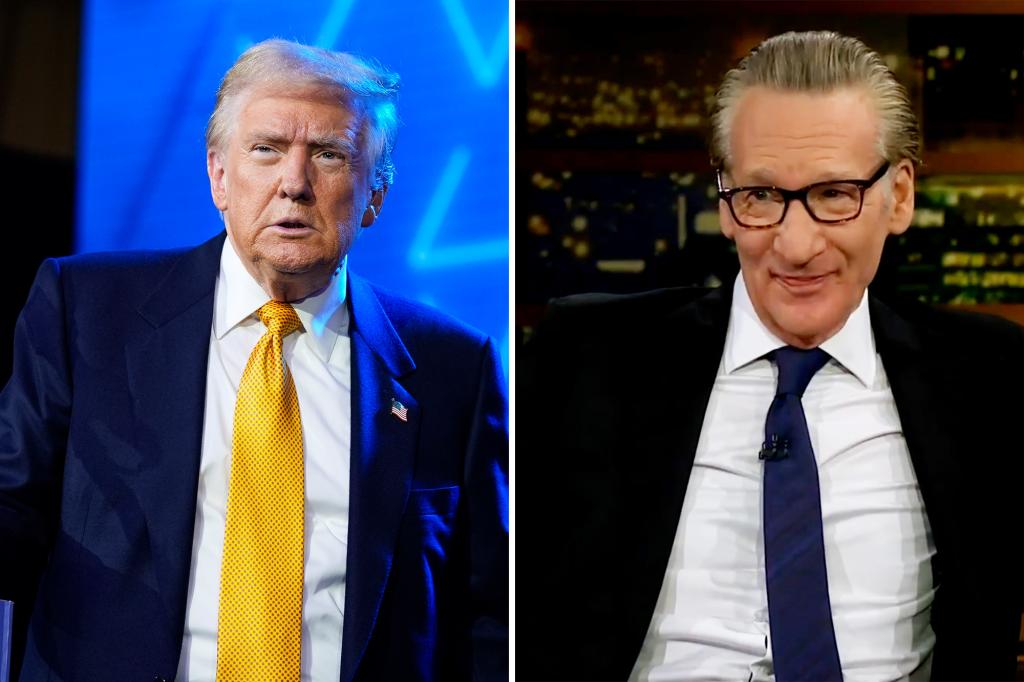Former President Trump went on a tirade against Bill Maher on Truth Social, criticizing the late-night host for his comments about Trump’s claim that if he lost the election, “the Jewish people would have a lot to do” with it. Trump attacked Maher for suffering from “TRUMP DERANGEMENT SYNDROME” and being “sloppy and tired” on his show on HBO, calling his guests B and C list and often reverting conversations back to himself. Trump also lashed out at Maher’s guests, including New York Times columnist Bret Stephens, whom he called a “Trump hating loser,” and MSNBC host Stephanie Ruhle, whom he labeled a “bimbo.”
Trump took particular issue with Stephens, accusing him of being unable to write well of Trump due to pressure from the New York Times editors. Trump claimed that the New York Times is a failing newspaper that has lost its way, and he accused the editors of going insane. He also referenced the Times apologizing to readers in 2016 for their coverage and predicted that they would do so again in November. Trump suggested that the New York Times should be put to sleep due to its supposed inadequacies.
During the segment of Maher’s show, Stephens described Trump as “a really scary guy” and “antisemitic adjacent,” suggesting that democracy is at risk when antisemitism is allowed to manifest. These comments were made in response to Trump’s claims about the influence of Jewish people in the election. Trump’s attack on Maher and his guests highlights the ongoing tensions between Trump and the media, particularly those who are critical of him or his actions.
The public clash between Trump, Maher, and their respective guests reflects the deep political divisions within the United States and the prevalence of personal attacks and aggressive rhetoric in the media. Trump’s use of social media platform Truth Social to air his grievances and accusations demonstrates how prominent figures can leverage technology to reach a large audience and influence public opinion. The exchanges between Trump and Maher also underscore the power dynamics at play in media and politics, with both sides attempting to shape narratives and control the conversation.
Overall, Trump’s criticism of Maher and his guests reveals the bitter animosity and polarization that continue to define American politics and media. The heated rhetoric and personal attacks from both sides point to a broader trend of division and distrust in society. The clash also raises important questions about the role of media in shaping public discourse and the responsibilities of public figures to engage in constructive dialogue. As the political landscape remains volatile, it is likely that such confrontations will continue to occur, further fueling tensions and exacerbating divisions within the country.


